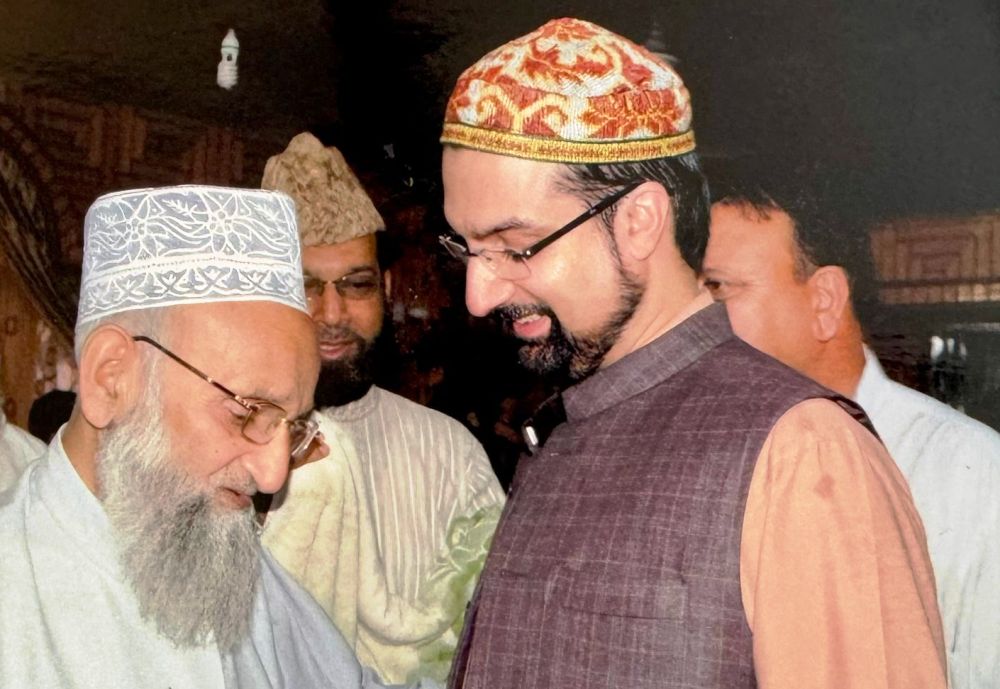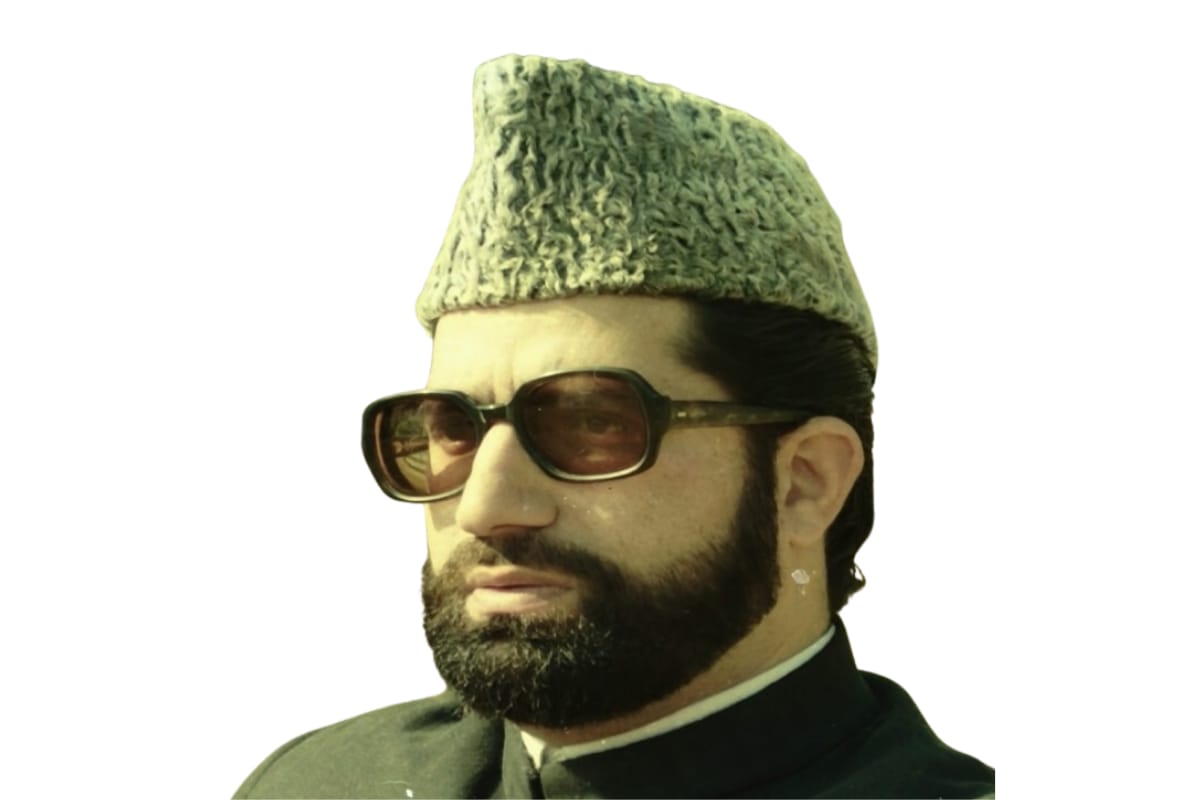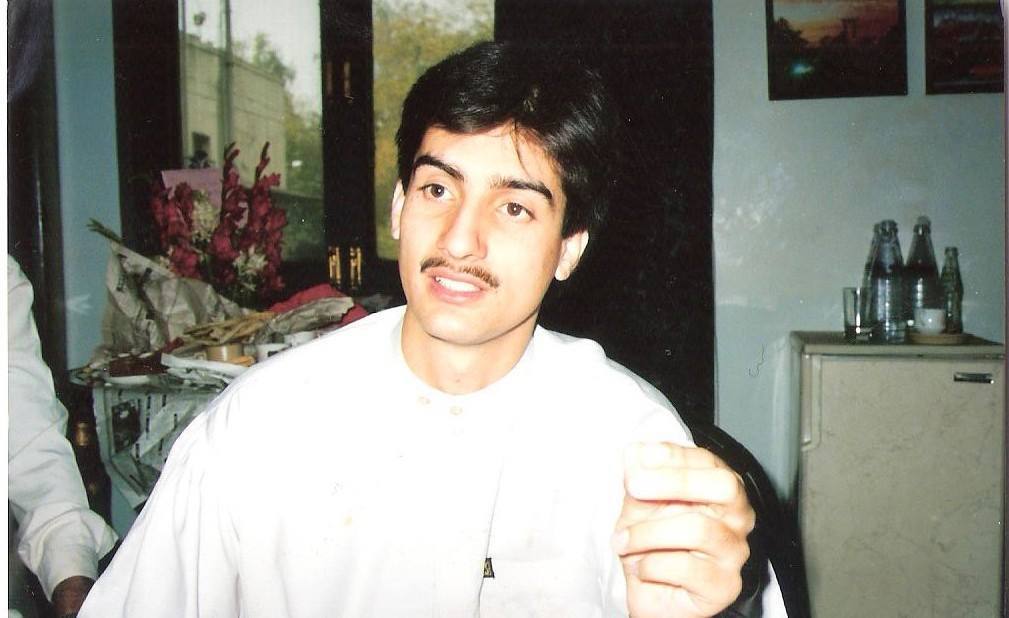by Dr Mirwaiz Umar Farooq
A person who is not thankful towards people can never be thankful towards Allah. – Holy Prophet Muhammad (peace be upon him)

This sentiment resonates as I reflect on the passing of Ghulam Mohiuddin Wani, known as Mahad Sab, in Srinagar on December 17, 2023. His influence on my life was profound, particularly during a pivotal and challenging phase.
In commemorating him, I wish to express my deep gratitude, recognising him not only as my teacher and mentor in religious matters but also as a symbol of the harmonious fusion of Islamic beliefs, spiritual practice, moderation, and a profound sense of responsibility towards traditions and culture.
Assuming the role of Mirwaiz (chief cleric) following the tragic martyrdom of my father, Mirwaiz Maulvi Mohammad Farooq, in 1990, was a formidable task. At the tender age of 17, I, a mere schoolboy, found myself thrust into a position of great responsibility during a period of familial grief and loss. The Mirwaiz institution, unique to Kashmir, has a rich tradition spanning over a century. The revered pulpit of the Mirwaiz has consistently guided believers, advocating against social ills and encouraging adherence to the devotional path prescribed by Islamic tenets.
Embarking on a transformative journey, I found myself thrust overnight from adolescence to the revered pulpit of Jama Masjid, the historic mosque nestled in the heart of Srinagar city—an endeavour laden with challenges.
During this pivotal period, Mahad Sab, a close associate of my late father and a steadfast adherent of the Mirwaiz family’s religious legacy, played a crucial role in facilitating a seamless transition. Offering his expertise and mentorship, he committed himself to equip me with the necessary skills and knowledge to assume the responsibilities of a Mirwaiz, guiding me through the intricate path leading to the pulpit.
Mahad Sab, a self-taught individual and a devout businessman by profession, demonstrated a distinctive approach to matters of faith and practice. Despite affiliating with the orthodox Salafi (Ahl e Hadith), he exhibited a Sufi temperament, embracing a dedicated pursuit of understanding Islam as a means to approach Allah with humility and gratitude.
He held a deep respect for figures such as Sheikh Abdul Qadir Jeelani and Khwaja Bahauddin Naqshbandi, along with other Sufi peers. Guiding me in the compilation of a Wa’az for the Urs ceremonies dedicated to these Sufi luminaries, he consistently participated in the congregations with unwavering commitment.
I witnessed his focused engagement when he compiled Wa’az, an effort in which he played a significant role. Reflecting on the experience, he conveyed the unique emotions evoked when watching me at the mimbar (pulpit) and delivering teachings from the bayaz (scriptures).

In the aftermath of my father’s demise, I delivered my inaugural sermon at Jamia Masjid, drawing inspiration from the teachings of Mirwaiz Ahmadullah, in Kashmiri. While I possessed spoken proficiency in the language, my written and reading skills were less developed. Mahad Sab facilitated my introduction to verses composed by Kashmir’s revered saint, Sheikh-ul-Alam, also known as Sheikh Nooruddin Wali. This served as a gateway for me to delve into the Kashmiri language. Subsequently, I was acquainted with Persian, particularly the writings of Jami, Khusrau, and Rumi.
The role of a Mirwaiz demands a distinct form of education not found in conventional schools or universities. The clerical tradition employs the unique practice of Wa’az-o-Tableegh (propagation through sermons) to impart knowledge and disseminate the teachings of Islam. This method relies on oral conventions, emphasising listening, repetition, and absorption—an approach that remains unchanged and free from distortion.
A Wa’az places particular emphasis on the life of the Prophet (peace be upon him), incorporating reverence, devotion, love, and praise for him. It also explores the significance of pious and learned saints and scholars of Islam.
A noteworthy aspect of the Wa’az is the recitation of Manqabat, which focuses on glorifying the Prophet (peace be upon him) and his companions; Manajaat, involving seeking forgiveness from Allah; and Na’at, comprising verses praising the Prophet (peace be upon him). Traditionally, the language used in these recitations has been Kashmiri and Persian, contributing to the unique structure of the Wa’az. This linguistic tradition persists, adding a distinctive quality to the overall presentation.
Embarking on the remarkable journey of assuming the role of a Mirwaiz, I underwent a profound period of initiation and education under the guidance of Mahad Sab. He introduced me to the intricacies and etiquettes of the knowledge system integral to this responsibility. The Mirwaiz Manzil’s Qutab Khana (library) houses a valuable collection of manuscripts, some dating back over 400 years, serving as a repository of Islamic learning and calligraphy. Mahad Sab, well-versed in these resources, held them in high regard, and his expertise left a lasting impression on me.
Navigating through the manuscripts of Mirwaiz Rasool Shah, Mirwaiz Ahmadullah, and Mirwaiz Ateequllah, Mahad Sab emphasised the key message of moderation and balance inherent in the religious practice and teachings of the Mirwaizeen. With a comprehensive vision and deep insight, he assisted in crafting sermons that resonated with contemporary congregations, drawing from the wisdom contained in these ancient texts.
Mahad Sab’s unique expertise extended to the oral tradition of passing on local knowledge, known as Seena ba Seena. An astute listener, his sharp memory, thoughtful approach, wisdom, and unwavering faith created a harmonious blend, positioning him among the select few capable of preserving and transmitting this valuable heritage.

With deep affection and respect, I acknowledge Mahad Sab’s significant contribution to my understanding of my religious role and responsibility. His impact on my life is profound, and his passing constitutes a personal loss that words struggle to articulate.
Regrettably, since my house arrest in August 2019, during which my Wa’az-o-Tableegh was prohibited under the new administration in Kashmir, I have been unable to meet Mahad Sab for four years. Despite this, he expressed his anguish through phone conversations. Now, with his demise, the precious 33 years of our association have concluded. His life served as an embodiment of the virtues he imparted, leaving a lasting impression on those fortunate enough to know him.
In his absence, I find myself without my guiding light.
(The author is the chief cleric of Kashmir, delivering sermons at the historic Jamia Masjid in Srinagar. Ideas are personal.)















